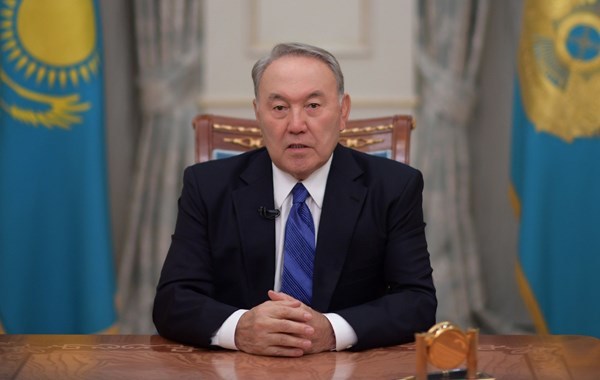Kazakhstan, the largest economy of the Central Asia has surpassed all the regional economies in terms of high GDPs, GNPs, exports and the last but not the least, smarter economy. Now, it is on the path of immense glory. Social development has been one of the main priorities of its government since inception. It values human capital. It projects comfort of life. It guarantees basic necessities of life.
President of Kazakhstan, Nursultan Nazarbayev announced “Third Stage of Modernization” further during 2018 which has in the consolidated its position regional as well as at international level. Now he has announced new social initiatives aimed at improving the lives of the of Kazakhstan.
The below given figure the importance of social development which is based on diversified but integrated policy initiatives to boost the life of ordinary people in the country by providing new mortgage loans, reduction of the tax burden for citizens with low wages, increasing accessibility and quality of university education, expansion of micro-credit, further expansion of the country’s gas production. It has actually started a “new chapter” of social development which is based on diversified but integrated policy initiatives to boost the life of ordinary people in the country by providing new mortgage loans, reduction of the tax burden for citizens with low wages, increasing accessibility and quality of university education, expansion of micro-credit, further expansion of the country’s gas production. It has actually started a “new chapter” of social development in the country, being expert on Kazakhstan and Central Asia I personally think that the competitiveness of Kazakhstan and its global authority would also benefit from the newly announced and implemented five social policy initiatives because it has multiplier effects.
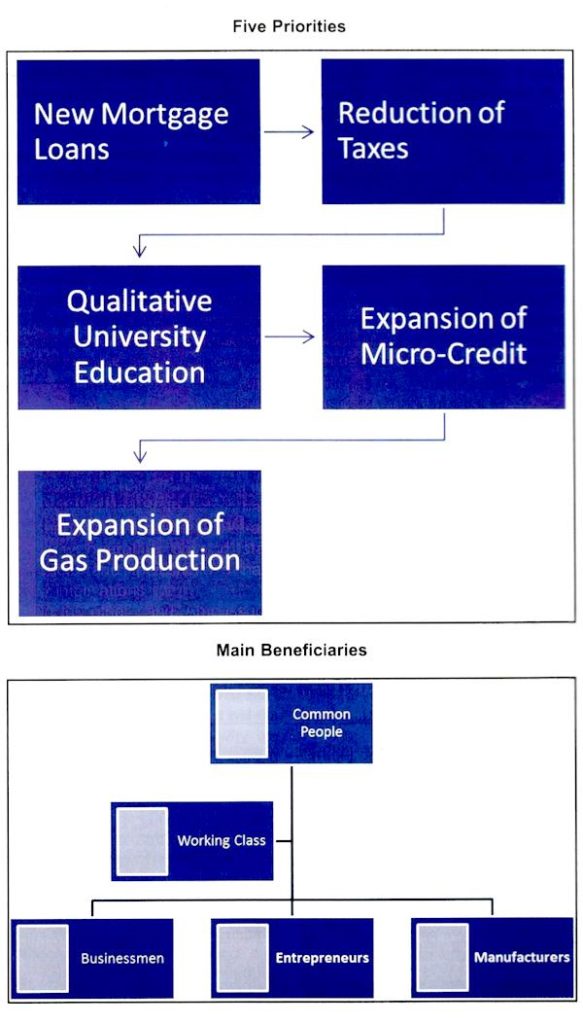
Five Initiatives & Kazakhstan 2050 Strategy
The five initiatives are part of a long-term project launched in 2012-13 with the “Kazakhstan 2050 Strategy”, which aims to make the country one of the top 30 world economies within the next 32 years, through a series of reforms in the political, economic and social context. 2.6 trillion tenge ($7.9 billion) would be allocated to implement social initiatives, which, among other measures, promote access to housing. Now housing loans will be easily available because of the provision of “mortgage loan”. Moreover, housing sector will also be developed because all working Kazakhs have the possibility of securing a mortgage under the new conditions. Mortgage interest now may not exceed 7 percent (currently 16 percent), and the life of the loan may be extended up to 25 years. It Will benefit millions of ordinary People especially young people. Who Will be able to buy homes through this program.
Kazakhstan is a multicultural country which is the home of 130 different ethnic groups. “Trilingualism (Kazakh, Russian and English) satisfies the fundamental interests of people and does not infringe upon the interests of any one in its country. Now a linguistic agreement has been signed in Kazakhstan which is indeed a golden decision.
According to new policy initiative the implementation of the program will give a powerful impetus to the construction of housing and, as a result, access to housing for many Kazakhstanis will increase.
The First initiative: Affordable Housing for families
| Policy Initiative | Now | Pervious |
| President proposed launching a new “7-20-25” program | Rate of return now will not exceed 7 percent per year | Rate of return was 14-16 percent per year |
| Initial Payment | 20 Percent | 30-50 percent |
| Length of Credit Facility | 25 year | 10-15 Year |
The second Initiative: Reduction of the tax burden to increase wages of low-paid workers
| Policy Initiative | Now | Pervious |
| Reduction | 1 percent | 10 percent (huge reduction) from January 1, 2019 |
| Increase in wages | 2 million will be benefited for the increase in wages and reduction of taxes | Less than 2 million workers was benefited |
| Progressive tax system | Tax burden will be decreased which resultantly enhance social status of the common People. | Tax burden was on higher side. |
The Third initiative:
Quantitative & Qualitative higher education
The President stated that extra 20,000 grants should be offered in the 2018-2019 academic year. Approximately 11,000 of these grants should be offered to those studying engineering at universities which will revolutionize engineering education and sector alike in the country. By 2022 new student accommodations will be built that will provide 75,000 new places to stay for students. It should be done through public-private partnerships.
The Fourth Initiative: Expansion of loans for businesspeople
| Policy Initiative | Now | Pervious |
| Allocation of an additional 20 billion tenge | Micro-Credit. Total allocation will reach to 62 billion tenges (193.4 million) | Limited exposure |
| New Micro-Finance Impact | 14,000 businessmen will be benefited | Only 7000 businessmen were benefited in 2017 |
| Start of New Businesses | This initiative will help thousands of people to start their own business especially in rural areas and village | Limited exposure |
The Fifth initiative:
Increase in Gas Production
Nazarbayev President announced the decision to build natural gas pipeline from the Kyzylorda region to Astana. It will not only provide gas to 2.7 million people, but will also help small and medium Sized businesses. It will also positively impact the ecology, as in Astana alone, harmful emissions will decrease by six-fold. In this regard, the government will explore ways to finance this project, including by attracting international investment.
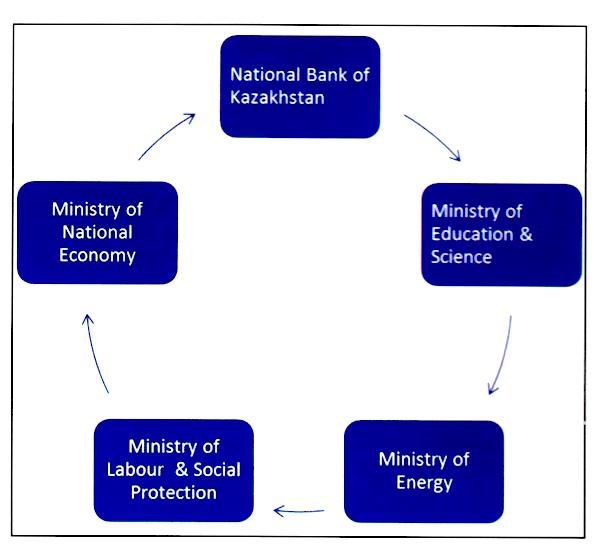
Implementation of the Social Modernization
The foundation for the implementation of social modernization has already been laid in Kazakhstan. Starting from January 2019 the tax burden on low-wage citizen will be reduced by 10 times. The micro-financing for starting own business has increased by KZT 62 billion, and preparatory works for the construction of the Saryarka gas pipeline near completion.
Approval of five social Initiatives roadmap
The Kazakh government has approved the “Five Social Initiatives Roadmap”. The Roadmap, development by the national bank and various ministries, was presented by Minister of National Economy Timur Suleimanov.
Social Modernization & Role of Different Ministries
Kazakh new social modernization initiative\ program is comprehensive mechanism which has diversified but integrated networking. Since it covers almost all key sectors of social development due to which different ministries are responsible for monitoring and implementation which is show in the above figure.
a). Supportive Role of National bank of Kazakhstan
The National Bank of Kazakhstan is primarily responsible for the first initiative to provide new opportunities for families to purchase accommodations for which a roadmap has been developed jointly with concerned states agencies. It consists of 35 actions. It provides a roadmap for the development of drafts of 7 laws, 6 draft Government resolutions, and 3 draft resolutions of the board of the National bank, as well as the adoption of 2 ministerial orders and 4 decrees of Akimats. It will establish a subsidiary national company as the sole operator of the program. The company will purchase 25 year, 7 percent mortgages provided by second-tier banks to citizens with 20 percent initial payment.
Key Measures
“The key measure involve the approval of 7-20-25 program and introduction of relevant amendments to normative legal acts for its execution. It has also plan to boost “Nurly Zher” Program financing by 20 billion tenge (US$62.5million) per year and make the change to it in accordance with terms of the 7-20-25 program”.
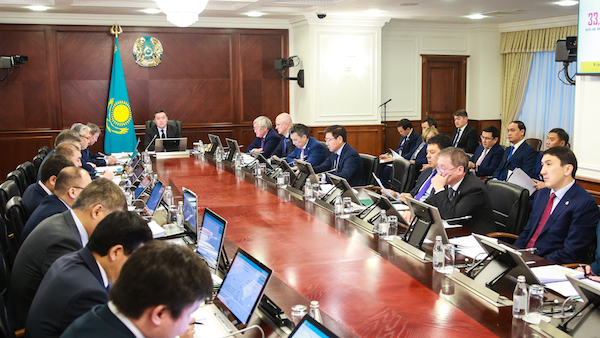
Basic Qualification
Any citizen of Kazakhstan who has an official income is eligible to take part in the program for which the criteria are now being worked out with banks. For example, with a housing value of 7 million tenge, the monthly payment is no more than 50 thousand tenge, which is generally affordable for the majority of working people in Kazakhstan. The differentiation of the cost of housing in large cities and regions is not ruled out, as the cost of housing is different Currently, Seven banks are accepting these kinds of applications.
Ministry of National Economy
According to the Ministry of National Economy, the first housing loan for the new mortgage program has been issued in August 2018. Currently, more than 5000 applications worth 35 billion tenge have been approved.
b). Responsibilities of Ministry of National Economy
The Ministry of National Economy will be responsible for the second initiative seeking to reduce the tax burden and increase income of low-paid workers. Relevant amendments related to income tax to the tax code have been initiated and investigation of potential implementation of progressive income tax system b August will also be started. The changes will enter into force during the next tax period beginning January 1, 2019. At present, the tax burden is reduced ten times for employees with a salary of up to 60,125 tenge (US$163.70).
c). Operations of ministry of Education and Science
The Ministry of Education and science will be accountable for the third initiative meant to increase the accessibility and quality of higher education and improve living conditions for students. Plans are underway to provide 20,000 state scholarships for technical majors during the next academic year, including 16,000 for undergraduate studies, 3000 for master’s degrees and 1,000 for phDs. The regional governors have identified land slots near universities and collages for dormitory construction. The objective is to build housing for 75,000 students by 2022. More emphasis has been given to technical education\ specialties. An ideal combination of public-private partnership will also be achieved.
d). Duties of Ministry of Labour and social protection
The fourth in initiative, increasing business loans, will be implemented by the Ministry of labour and social protection. It will amend the productive employment and mass entrepreneurship programmed for 2017-2022 by seeking a bigger objective of boosting microloans and stimulating entrepreneurship especially in rural areas. Micro financing has been increased this year by 20 billion tenge (US$54.46 million), including 6 billion tenge (US$16.34 million) in cities and 14 billion tenge (US$38.12 million) in villages. Microcredits totaling 62 billion tenge ($US168.84 million), 45 billion tenge (US$122.55 million) in rural areas and 17 billion tenge (US$46.29million) for urban areas, are expected to cover 14,000 people.
Facilities of micro-credit (2018)
Moreover, in total, from the beginning of the year, 38.4 billion tenge (US$104.57 million) was spent on microcredit, of which 10.5 billion tenge (US$28.59 million) was spent on microcredit, of which 10.5 billion tenge (US$28.59 million) was in urban areas and 27.9 billion tenge (US$75.98 million) in rural areas. The best indicators in terms of the regions are observed in the city of Almaty and the Almaty, west Kazakhstan and Zhambyl regions.
Importance of microcredits
Microcredits are vital for increasing the income of the self-employed and unemployed population. According to Kazaks official figures, seven thousand, nine hundred and fourteen people from the self-employed and 979 unemployed were given the opportunity to do business, as well as to formalise their activities. Also, many jobs were created. In total, 8,256 jobs were additionally created by the recipients of microcredits.
e). Monitoring of ministry of Energy
The Ministry of energy will be responsible for the last initiative on further gas provisions, namely construction of a gas pipeline from Kyzylorda to the capital through Zhezkazgan and Karagandy.
“The construction scheme of the saryarka pipeline and finance terms will be identified very soon. There are plans to attract investment from international financing institutions, such as the European bank for Reconstruction and Development (EBRD) and Eurasian Development bank. Regional governors will earmark land lots for the pipeline in June and the project will be launched in June to terminate in February 2019.
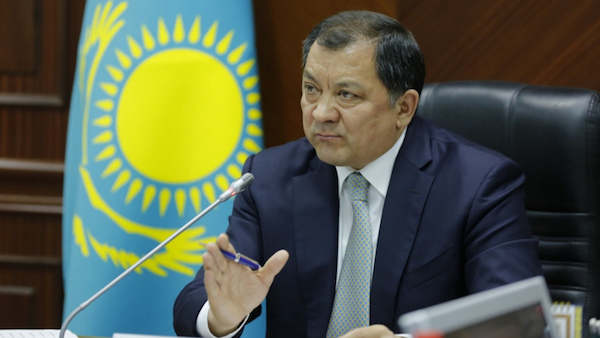
New social modernization initiatives of Kazakhstan are aimed at improving the quality of life, which is one of the main competitiveness of the nation’s competitiveness. Better accessibility and quality of higher education will contribute to the growth of human capital and competitiveness of the national that are evaluated under the three “Ts” criterion: talent, technology, and tolerance. Housing initiative should have a great effect.
Concluding Remarks
Kazakhstan is the “pioneer” Of introducing comprehensive reforms in the field of social sector which has already “revolutionized” its economy, society, banking industry, construction and of course service President Nursultan sectors. Announced Nazarbayev new reforms of social modernization. Its roadmap has also been approved. Furthermore, allocation of funds has also been disbursed to different sectors for achieving the desired goals of this policy initiative 2018.
It has actually started a “new chapter” of “socio-economic prosperity” in Kazakhstan since March 2018. It is the first giant step towards social revolution. It is a “paradigm shift” in the whole of CIS and especially Kazakhstan since 2013. It is a permanent” and “continuous process” It has started “vertical” as wen as “horizontal” approach for implementing social modernization.
Over the past decade, Kazakhstan has built a record of strong macroeconomic management and a rules-driven fiscal framework, strengthened public management and the business climate, shifted resources toward social services and critical infrastructure, and started addressing environmental problems. Kazakhstan’s development objective is to join the ranks of the 30 most developed countries by 2050. Its long-term vision focuses on economic diversification to move away from natural resource dependence and toward more balanced growth, and social modernization away from social disparity and toward more inclusive growth.
Since 2014, President Nursultan Nazarbayev has promoted a “multilayered” vision for modernization, impacting the Kazakh culture, traditions, politics, society and business and which, ultimately, aims to lead the country toward a sustainable future. This fundamental shift has been carefully crafted by the country’s political leadership to have a steady and significant impact on the society. It has introduced a new model of economic development which will be further consolidated through initiating comfort of life, providing basic necessities of life, education, and of course development of human capital.
Kazakhstan’s modernization process is “evolutionary, not revolutionary”. It introduced meaningful reforms in the fields of economy and politics and resultantly, achieved elements of stability and sustainability in economy and sense of maturity and development in national politics. Now the government has initiated rigorous social modernization which will benefit the whole working class, especially the youth. Provisions of micro-credit in the newly announced social initiatives will benefit the youth country. Micro-credit is the of the “engine” for the growth of Small and Medium Enterprises (SMEs) in the world which has produced “miraculous” results in various countries. The government of Kazakhstan has also announced new reforms in the fields of micro-credit. it will also be useful for Development Goals in Kazakhstan because it deals with the social and needs of humanity.
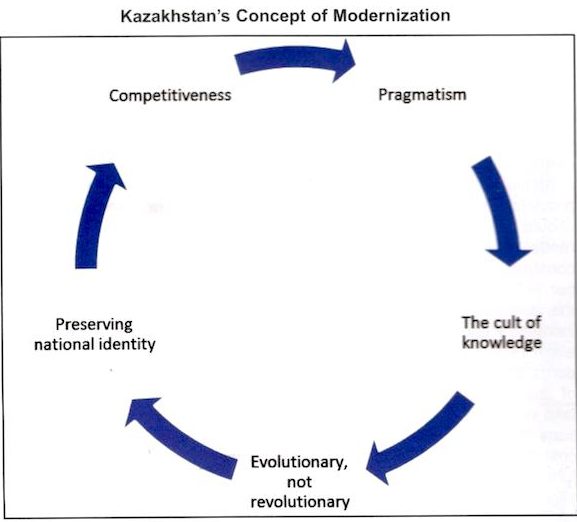
Raising minimum wage is a huge step as this WII benefit the entire working population. Minimum wage from 28,000 to 42,000 tenge will be implemented from January 1, 2019. This step will benefit about 1.3 million people in Kazakhstan. To this end, 96 billion tenge will be allotted from the republican budget annually in 2019-2021. The increase will apply to 275 thousand workers of state-funded organisations, whose salaries will grow on average by 35 percent. The government has allocated 96 billion tenge annually from the republic’s budget for 2019-2021. From now on, the minimal salary will not depend on the subsistence level. In general, the amount of the new minimal salary will boost the labour remuneration covering the whole economy.
I think that five social initiatives by President H.E. Nursultan Nazarbayev can be great progress tools for Kazakhstan. The current set of reforms is a big step towards social development and stabilization in Kazakhstan. Social development is crucial for achieving elements of stability and sustainability in its macro-economy. It is very important that the population receives such wide support from the state, including benefits on rent, lower taxes, and education and micro loans. It also indicates that the overall level of Kazakhstan’s economic development has developed.
Five social initiatives of Kazakhstan are “inspiring”. The whole Kazakhstan will benefit from the president’s five social initiatives. The life of “underprivileged” may be further improved. Five social initiatives of Kazakhstan is consist of providing basic needs such as housing, education, better wages and more amenities to the needed.
Being prominent expert on Kazakhstan and Central Asia, I stress the ideal combination of “quantitative and qualitative” higher education not only in “engineering” but also to other “disciplines”. Germany is the prime example of free higher education which must be further studied for its genuine implementation in the country.
In housing sector/ policy initiative provision of housing per capita should be rationalized which is currently 21 square meters, and the construction of houses per capita per year. It would give impetus to the construction industry in terms increased competition, professionalism and responsibility. The standards shall improve; the geometry of the residential buildings shall take into account the climatic conditions throughout Kazakhstan. The cost of housing construction will be further reduced enough to maintain affordability of the mortgages. The construction industry will emerge as a driver of the economy affecting the financial sphere and banking industry in the future.
Furthermore, the allocation of housing certificates will enhance the affordability of mortgages for highly skilled teachers, medical workers, police officers and other experts the region needs. It will also enhance the construction of rental housing for socially vulnerable population in big cities. It will help more than 250 thousand families to improve their housing conditions. The construction of utility infrastructure for massive housing areas, the state will help 650 thousand families or more than 2 million of our citizens in five years.
Reduction of the tax would allow 2 million law-paid people to receive about 150 billion tenge of additional revenue per year. This would have positive social impact and give significant impulse for the economy due to increased aggregate demand, consumption of goods and services produced in Kazakhstan.
In the taxation system, progressive taxation must not be limited to the individual income tax rather it must cover all the important sector of its national economy and channels of production. Singapore is the prime example of a progressive taxation system (individual income taxation) which has enabled to reduce the taxes on business and increase their collection. I must say all recent initiatives of the Kazak President are aimed at improving of the well-being of every citizen of Kazakhstan and shall result in better quality of the human capital and modernization of the society. Moreover, further gasification of the central and northern regions of Kazakhstan and the city of Astana will definitely prevent further environmental degradation. The gas pipeline to be constructed shall attract more investment into Kazakhstan in the days to come.
President Nursultan Nazarbayev announced five social policy initiative i.e., mortgage loaning, reduction of tax burden, quantitate and qualitative higher education, availability of micro-credit and the last but not the least easy and smooth gasification is indeed a “investment of the future” owning to which its youth will be great assets to its economy and society alike in the days to come. There will be further omen empowerment in the different regions of the country especially in rural areas. The ratios of poverty will be further decreased. Business activity will be accelerated. Public-Private partner-ship will be further explored.
Denial of social development usually supports societal fragmentation and produces spirits of divergence in a country A sustained social development is the custodian of economic prosperity and political stability. Social development is one of the main sources of job generation. It actually transforms a nation’s thinking towards social justice, law, family, nationalism, pragmatism and above all human values. Keeping in view, the Strategic importance of social development a new set of social modernization has been initiated by its visionary President of Kazakhstan, Nursultan Nazarbayev.
Social development is the “crown” of any economic system policy. It is about improving the wellbeing of every individual in society so they can reach their full potential It connects “dynasties with dynamics. It is pro-development. It is pro-human because success of society is linked to the well-being of each and every citizen. It is meant to invest in people. It requires the removal of barriers so that all citizens can journey towards dreams in lives and president Nursultan Nazarbayev’s “five Social Policy initiatives” are the basis of human development in the country.


